I spend a fair amount of time daily (more than I care to admit) scrolling through various Facebook chicken groups. They are generally populated by particular kinds of posts: sharing photos of their flock; questions like ‘Is this a hen or rooster?’ and appeals for help with an illness or injury. Recently I toggled from one group to another and was frustrated to see three posts in three different groups with a photo of a dead bird prefaced by ‘What happened to my chicken?’.
I was frustrated because these types of threads are common and all too often accompanied by NO additional information.
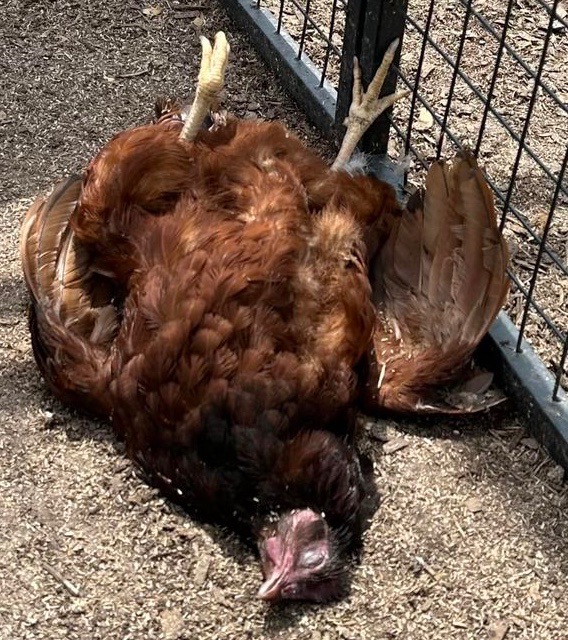
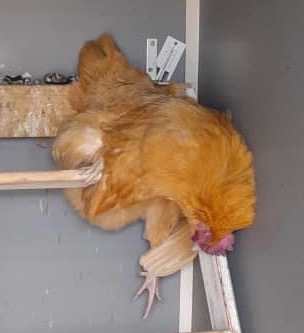
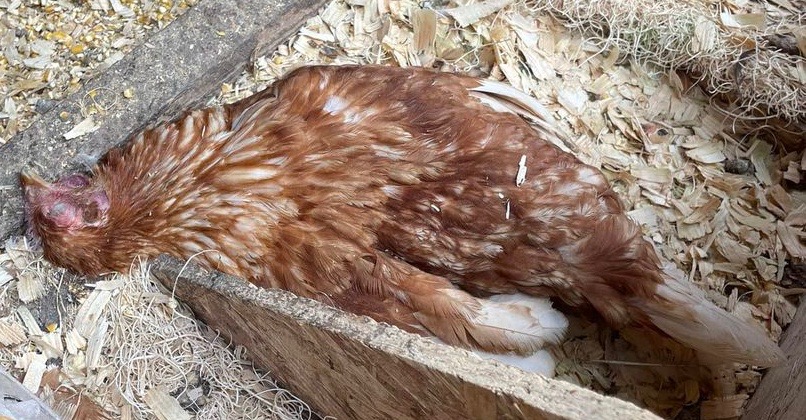
(Credits clockwise: Renea Parks, Gwen Cote Getz, Katie Holmes)
I’m not sure why folks feel that somehow the chicken keepers reading these stories are mind-readers. It’s akin to showing a photo of a dead person to a pathologist and asking, ‘How did my grandma die?’. It sounds silly, but the underlying assumption is there’s a simple answer, when almost always there’s not.
How can anyone, even a trained avian veterinarian, accurately offer a diagnosis solely based on a photo? That doesn’t stop group members from chiming in with their opinions, most of which are not helpful and don’t provide the information that is requested. I get particularly annoyed when the response is ‘Sometimes a chicken just dies for no reason’. Any pathologist will tell you that’s not true. There is always a cause of death, regardless of whether you understand what it is or not.
I think that this trend is indicative of the digital age in which we expect quick and easy answers to complex questions. I wouldn’t imagine going to a doctor’s appointment, sitting down and waiting for my physician to tell me what’s wrong, without me first having shared my medical history and current symptoms. And even then, they may not come up with the correct diagnosis without further diagnostic testing.
Three years ago, I connected with Dr Vicki Bowes, DVM/avian pathologist. I asked if I could send her some photos of a an interesting case I’d collected from an online chicken group for her diagnosis. She suggested a more meaningful learning experience would be for us to get together in person so we could discuss the material in greater depth and she could explain what I was looking at.
That initial visit was the first of many and resulted in our collaboration on my series Avian Pathology Cases, currently featuring more than 300 cases in 48 posts. I collect photos/stories on a memory stick and we wade through them on her laptop. I’ve been like a sponge at her side, absorbing every piece of advice and information she’s given me. Over time I’ve moved past the mundane illnesses and injuries and tried to find things that Dr Bowes has never seen. We’re both appreciative of the folks who provide the details of their bird’s medical history, and silently – maybe sometimes, not so silently – curse the folks who post a photo merely asking ‘What’s going on with my chicken?’.
I’ve compiled this checklist (with input from Dr Bowes) of things to record that might be useful whether you are visiting your vet for treatment, posting for online help or sending a dead bird for a necropsy. The more information you can offer the more likely you’ll find out an accurate diagnosis. And in the case of a sick or injured bird, time is of the essence. Remember, bad advice can be a waste of time and money and worsen the outcome for your patient.
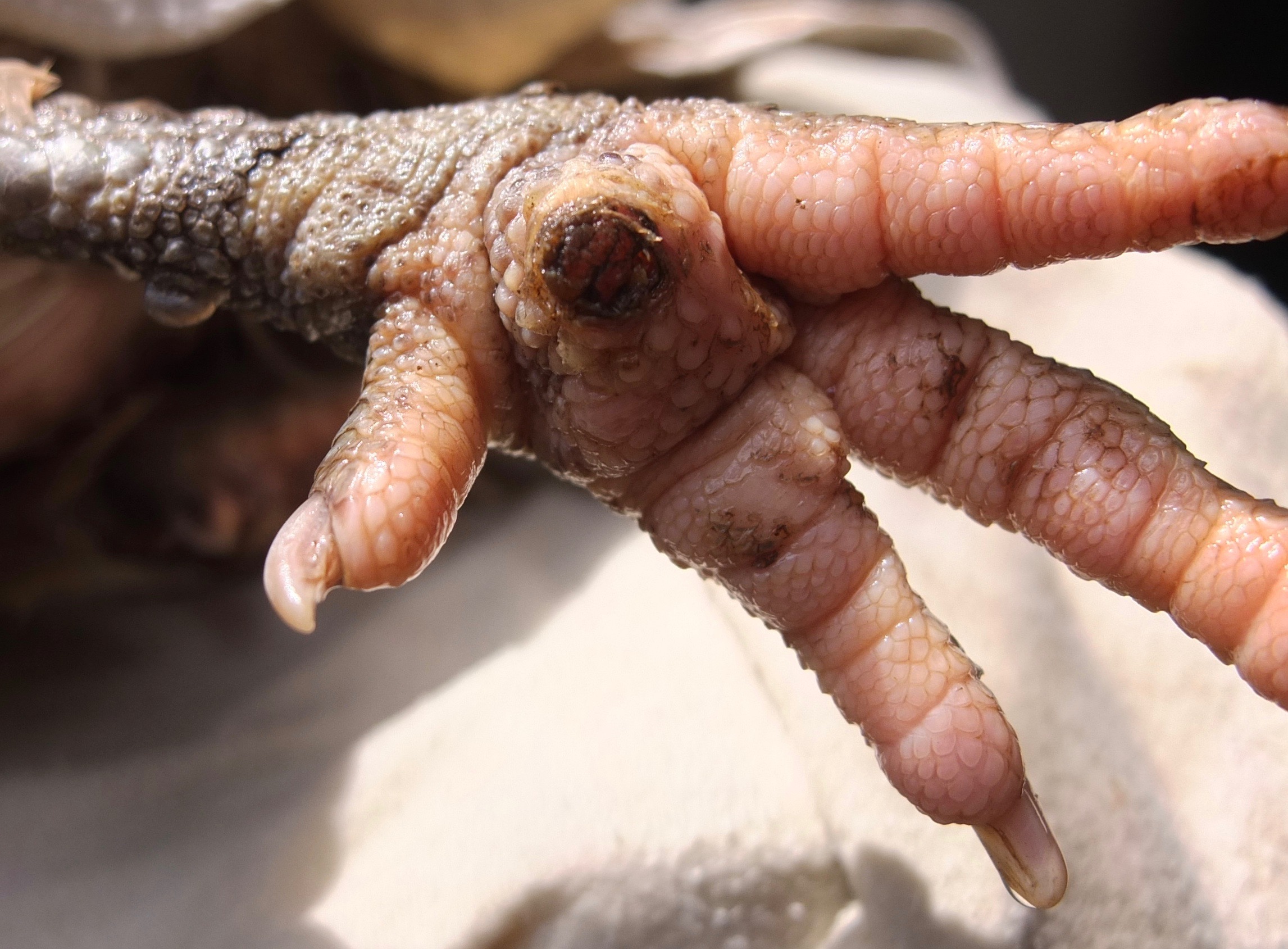
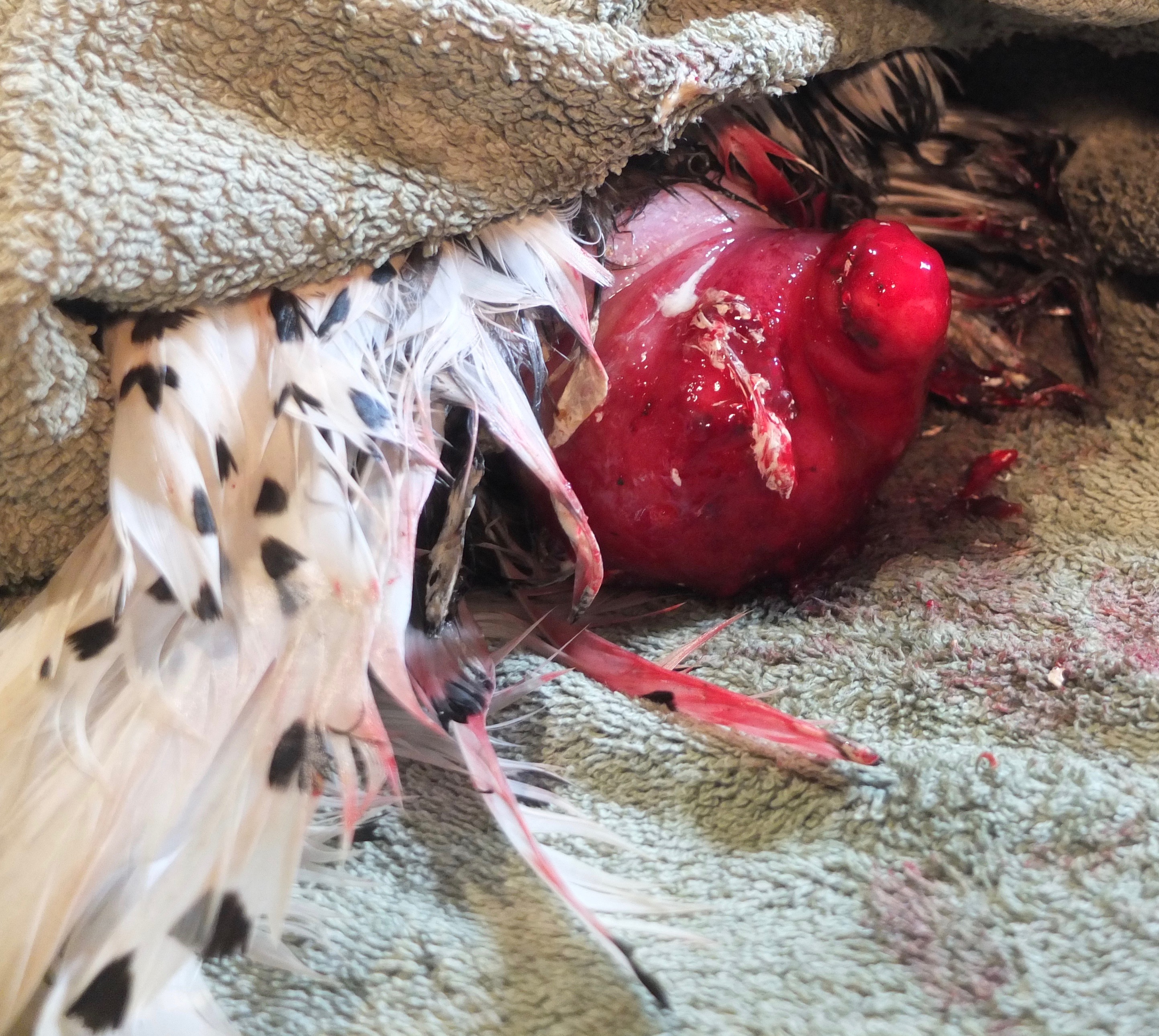
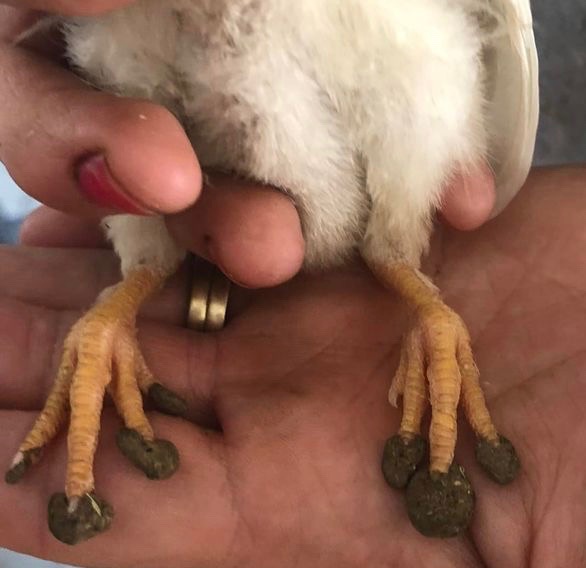
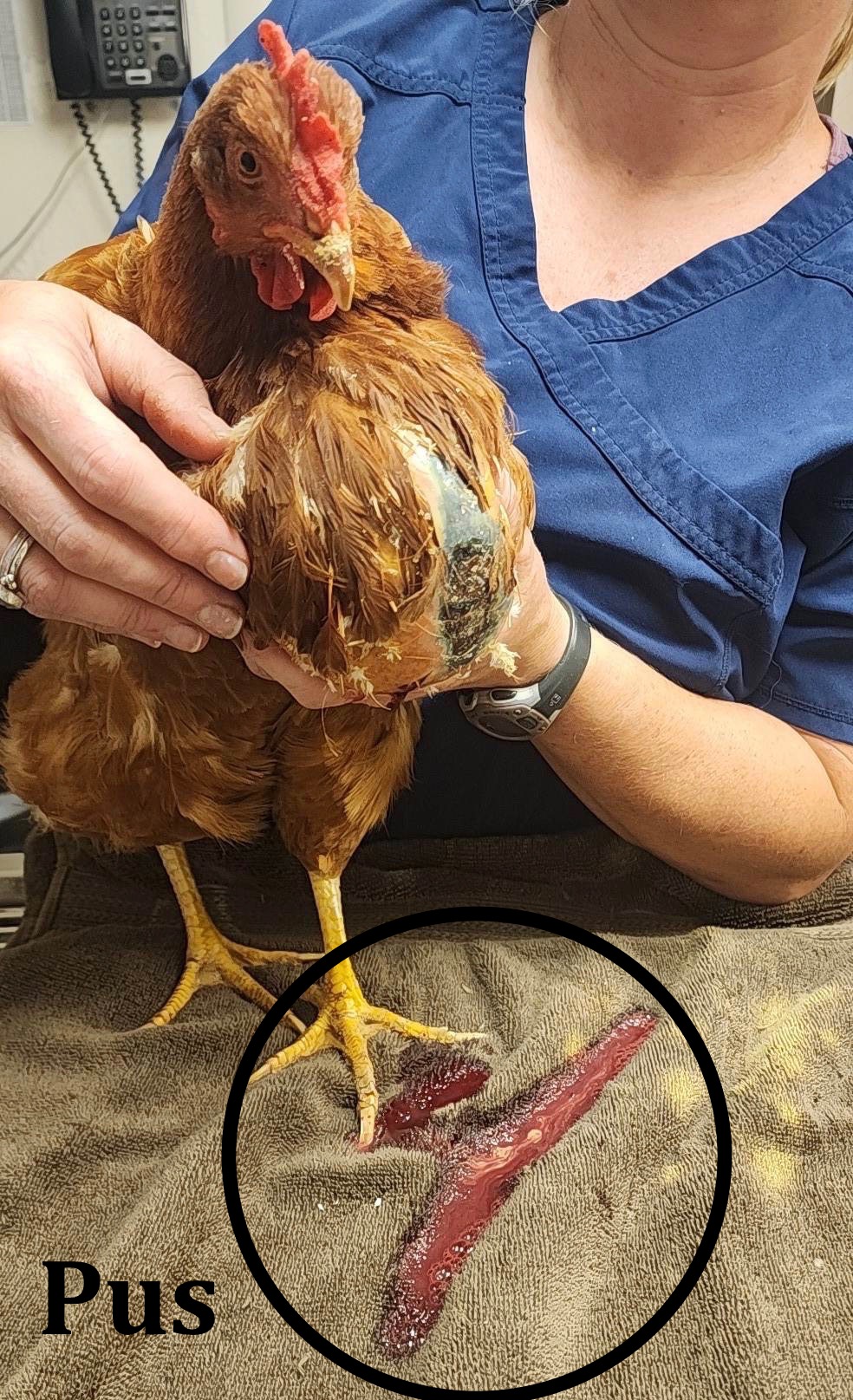
(Credits clockwise : Bitchin’ Chickens, Rain Hampton, Heather Wyma Campbell, Bitchin’ Chickens)
Sick/Dead Bird
- What breed, sex and age of bird(s)?
- What is the flock size?
- Where did you get your birds from?
- How many sick? How many died?
- What are the clinical signs?
- When did the symptoms start and for how long?
- Any change in water or feed consumption?
- Any change in egg production/egg quality?
- What are the birds eating (feed source)?
- What is the water source?
- Describe housing/range
- Have your birds been vaccinated? If so, for what?
- Has anything changed recently?
- Any recent introductions or movement of birds?
- Medications given?
- Any interventions with positive outcomes?
- Evidence of internal or external parasites?
- What do you think this is?
- Any veterinary care provided?
Injured Bird
- Do you know what happened?
- When did it happen?
- Extent of their injuries?
- Is the bird in shock?
- Active bleeding?
- What have you done to treat it?
- Is the bird eating, drinking, alert?
- Are you able to get veterinary care?
- Do you have a good first aid kit?

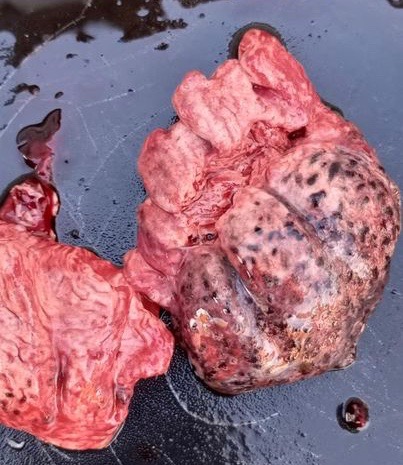
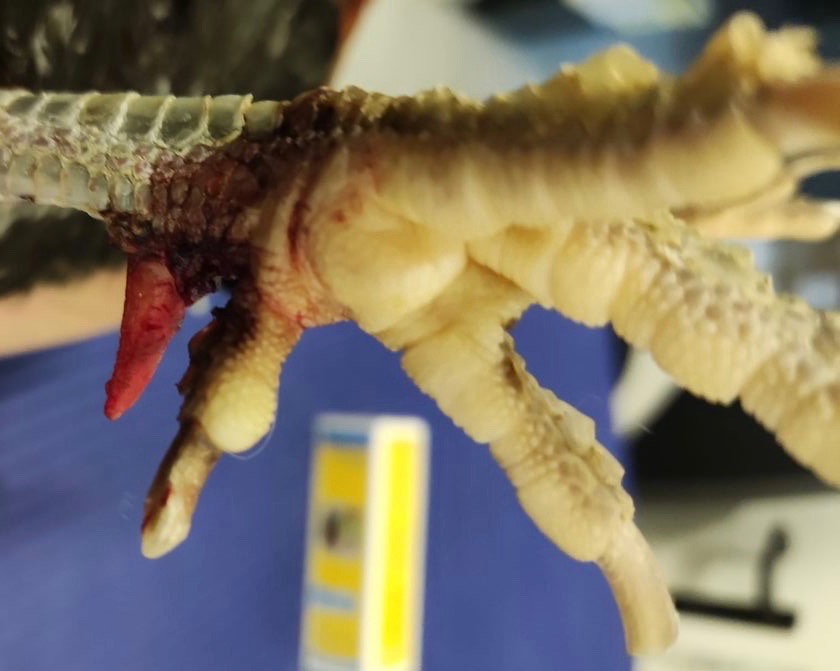
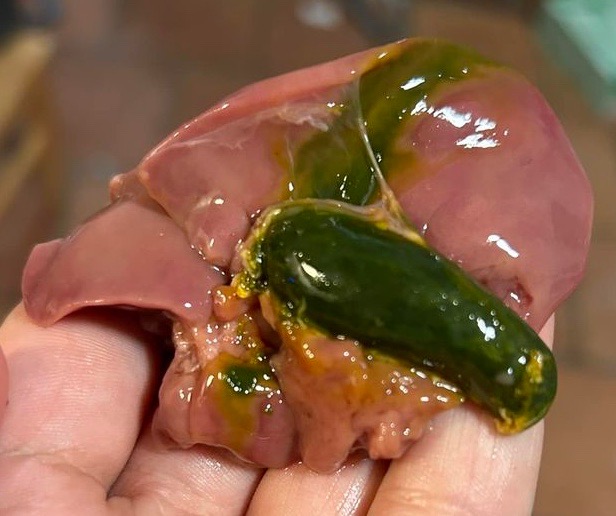
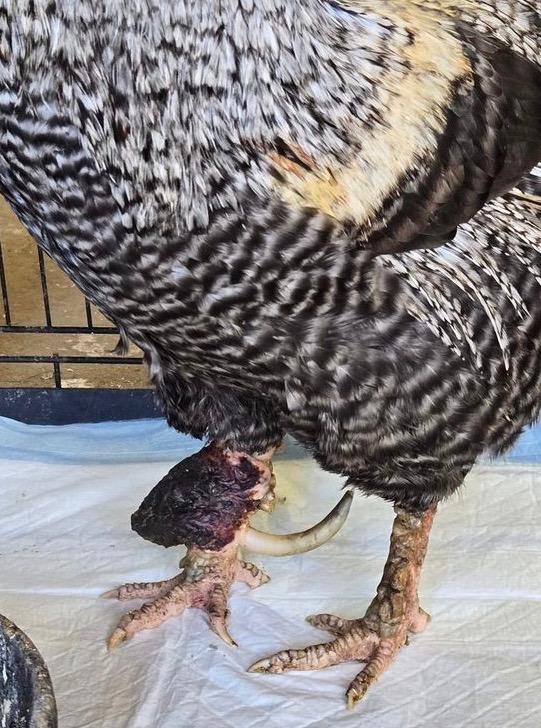
(Credits clockwise: Unknown, Katina Choiniere, Tammy Martin Hawk, Michelle Edrees, Angelica Gobbi)
Necropsy
- I recommend, if possible, sending a deceased bird off for a professional necropsy (check out your local veterinary colleges or agriculture department for services in your area).
- If you want to try your hand at a DIY version, you’ll just be searching for obvious issues and won’t be doing the in-depth lab work that can be done by a trained vet, which would include looking for evidence of parasites and pathogens using a microscope.
- It often doesn’t take a vet to see when a bird has died from reproductive issues like Salpingitis, Egg Yolk Peritonitis, Ovarian Cancer or internal laying. You can also find evidence of thickening of sciatic nerves from Marek’s Disease or excess fat accumulations indicative of Fatty Liver Syndrome.
- Take a look at this post for guidelines on what you can do at home to investigate the inner workings of your deceased bird.

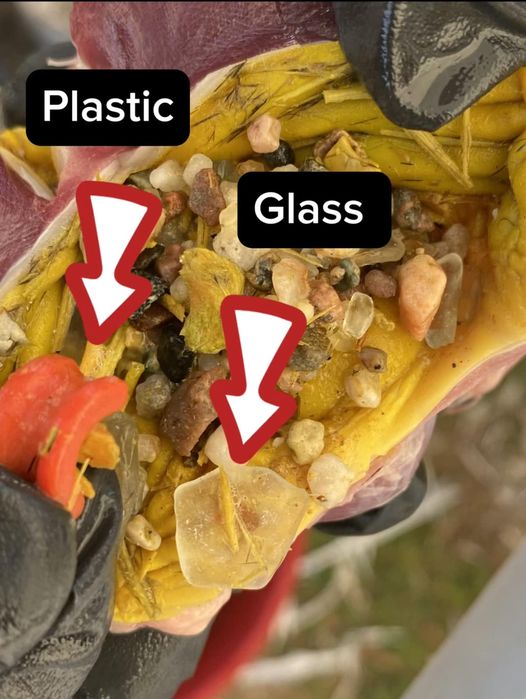
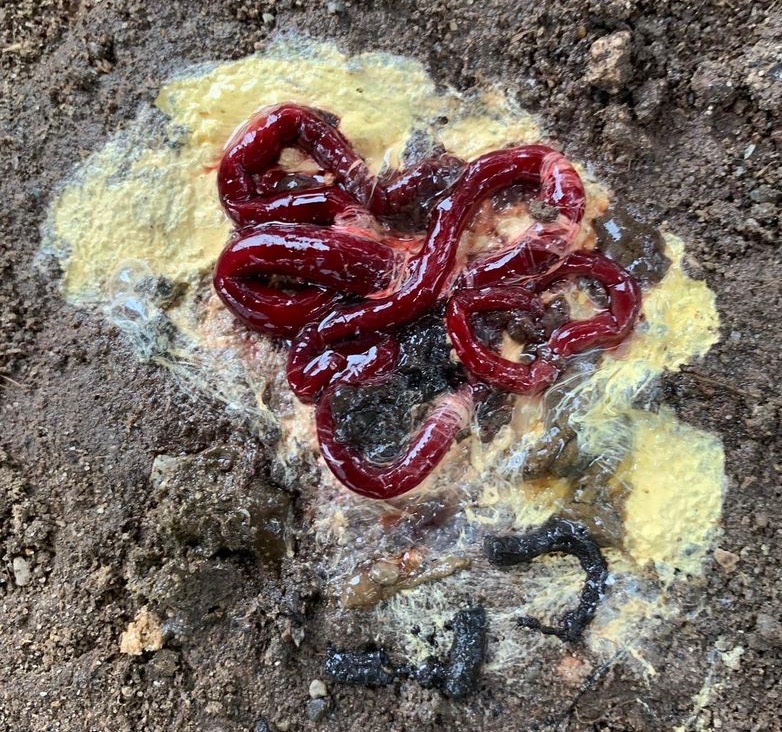
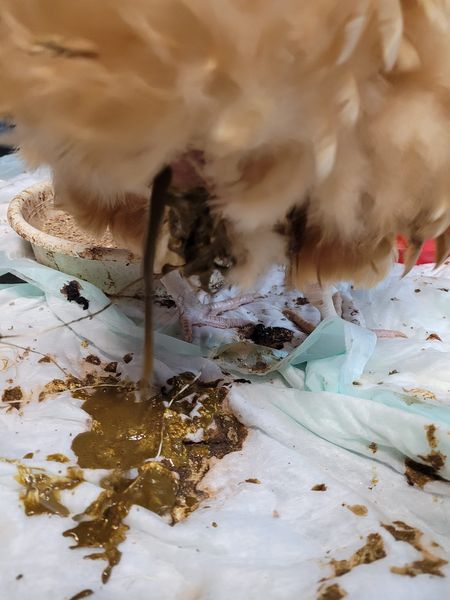
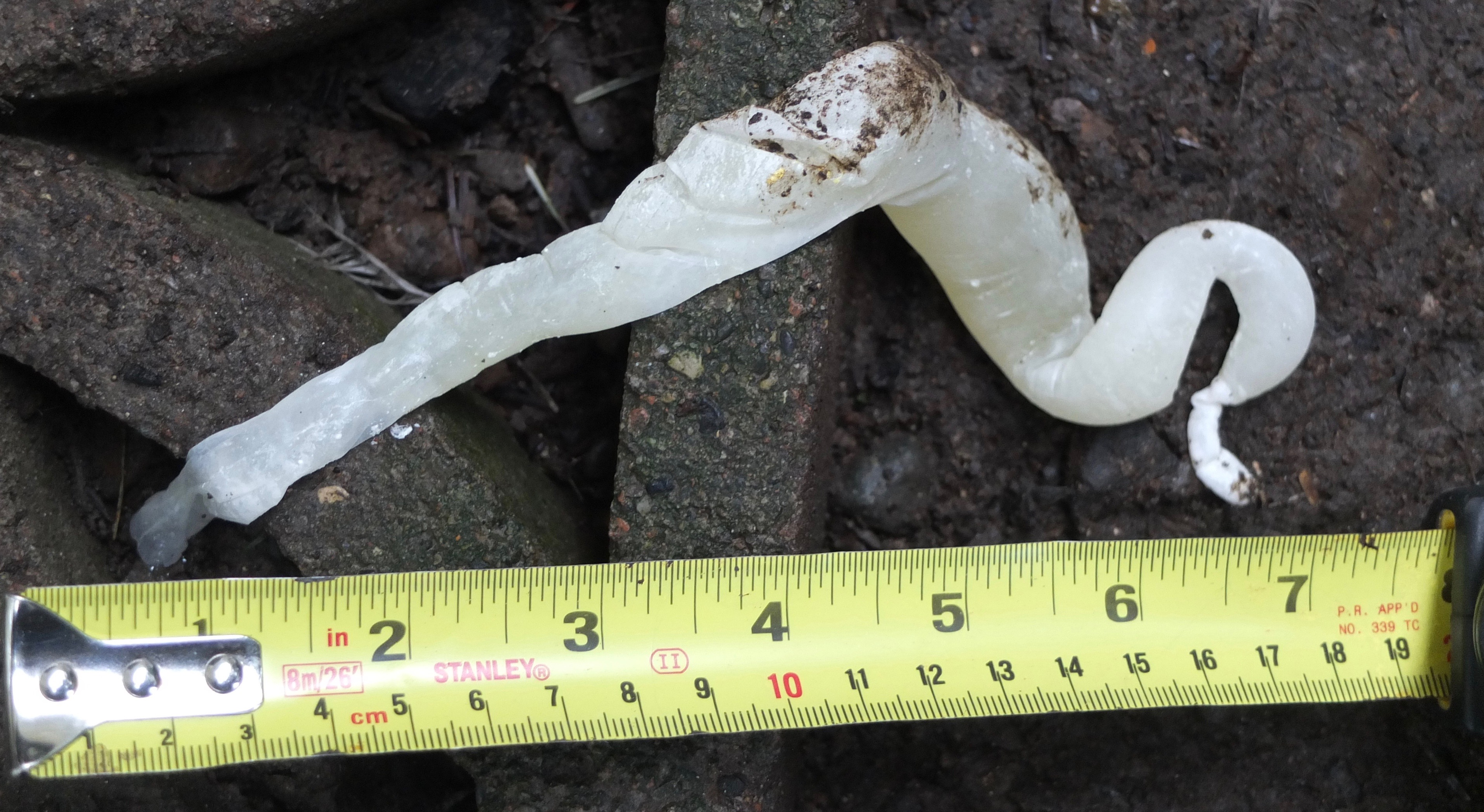
(Credits clockwise: Unknown, JC DeOcampo, Bitchin’ Chickens, Jessica Beaver, LeeAnn Boland)
Tips For You
- Spend time with your flock to learn what is normal so you’ll recognize when something is not
- Do regular health checks to feel and observe things that might not be readily visible
- Don’t wait days till you ask for help
- Take good, close up photos/videos from several angles
- Do a complete physical exam and describe what is going on (i.e. Is the abdomen soft and squishy or hard? Is the lump attached or moveable? Is a lump solid or fluid filled? Size of a tumour or a gash? Does an infection smell? Is it black or hot?)
- If the condition continues, take photos/make notes daily to document any changes (i.e. has a lump gotten bigger or smaller?, Is a wound healing?)
- Observe and document your chicken’s behaviour (e.g. Is it eating/drinking? Alert? Pooping normally? Lethargic?)
- Remember to wear gloves when handling a sick, injured or dead bird
- And please provide plenty of information from the list above in order to provide potential helpers with all the information you have and that they will need to steer you in the right direction
Featured photo credit: Linda Cockrum
If you’d like help with a case drop me a line using the ‘contact’ button on my home page. If you’re curious and not in a hurry (i.e. a medical emergency) I can present it to Dr Bowes for her opinion. She’s not always able to come up with a definitive answer, but she tries her best given the information we have.
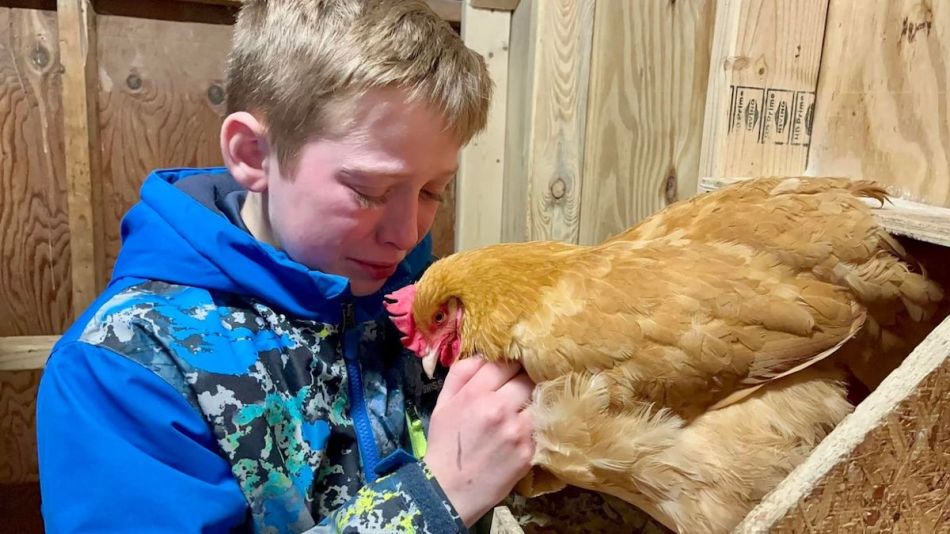
Excellent information!
LikeLiked by 1 person